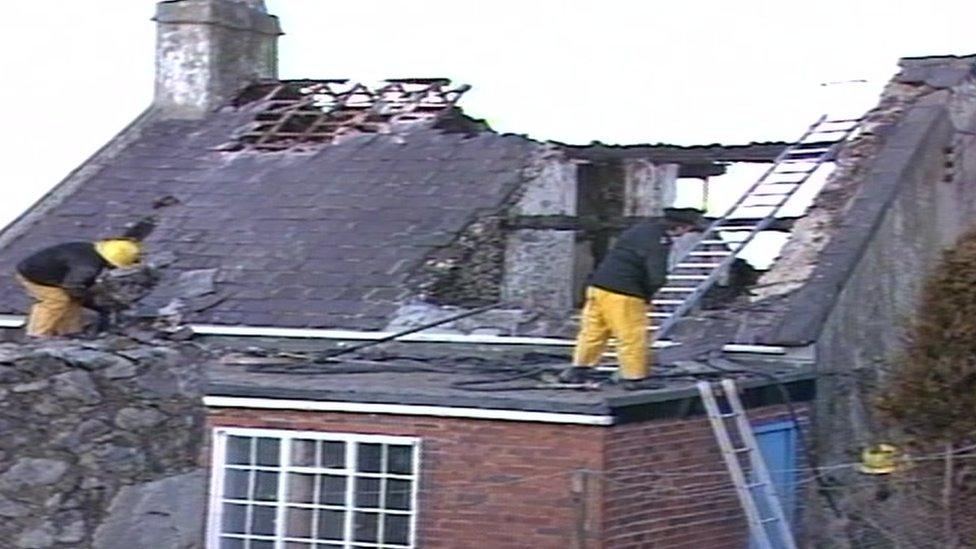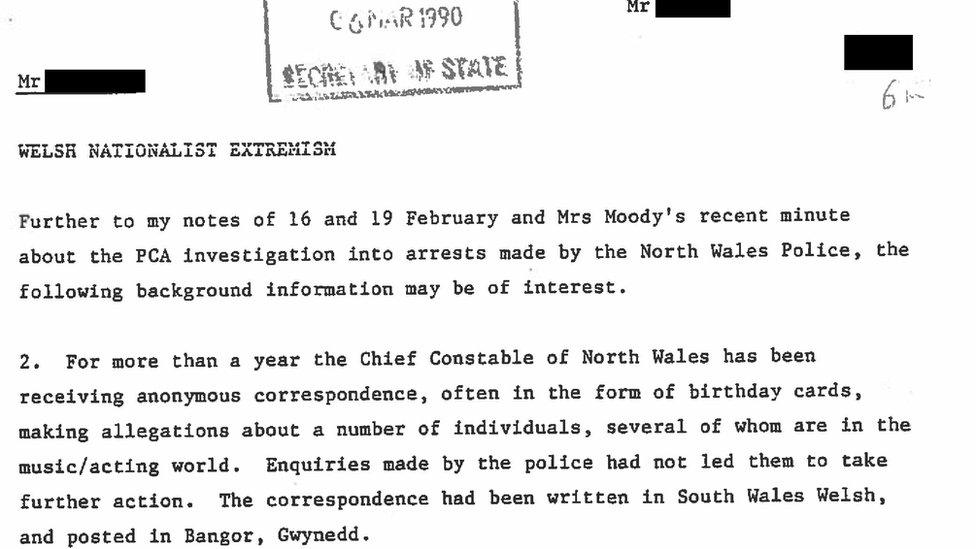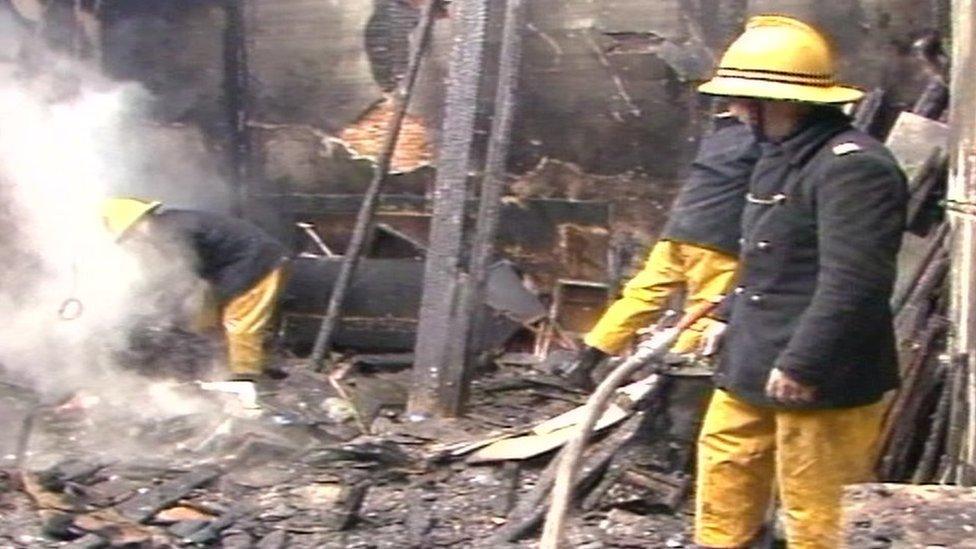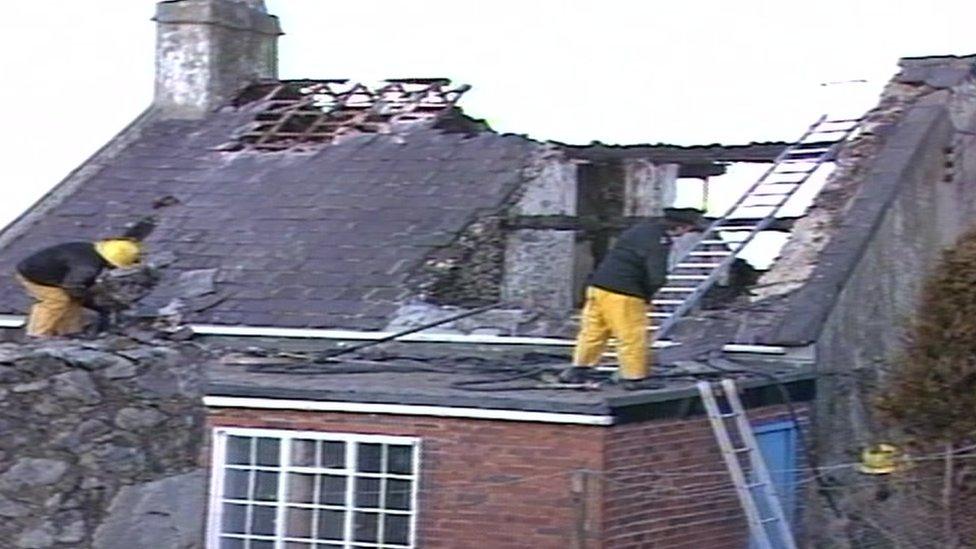Meibion Glyndwr: Home Office papers released about holiday home attacks
- Published

The UK government's attempts to respond to an arson attack campaign on holiday homes in Wales in the 1980s and 1990s have been revealed for the first time.
More than 200 properties were damaged in the so-called Meibion Glyndwr campaign.
Papers obtained by BBC Radio Cymru's Manylu programme highlight concerns about sympathy for the arsonists within Welsh-speaking communities.
Only one person was found guilty of being involved in the attacks.
Meibion Glyndwr: Wales' decade of fire bomb attacks
Over a period of 12 years from 1979, what became known as the Meibion Glyndwr arson campaign saw 228 incidents.
Programme makers took more than a year to get the confidential papers released using the Freedom of Information process.
The Home Office argued that releasing them would reveal specific law enforcement and national security techniques.

The papers also reveal that the North Wales Ch Con had received anonymous mail about the campaign
The UK Information Commissioner upheld the BBC's request, although several names were redacted.
One of the documents states that police found it difficult to obtain intelligence on the attacks "partly because there was some sympathy at present within the native Welsh community for those who sought to preserve the Welsh culture and language".
Singer and former Plaid Cymru chairman Dafydd Iwan has long believed the security services played a part in the arson campaign.

He said: "Yes there was sympathy with the issue of holiday homes - that is the Welsh communities were being taken over by the people buying holiday homes, which meant there were no homes for the local people but that was no excuse for the police not to catch them.
"I go back to what I said previously - were there agent provocateurs involved?"
The papers also refer to the arrest of actor and songwriter Bryn Fon, who was held at Dolgellau police station for 48 hours in 1990, after police claimed they had discovered a package hidden in a wall on his cottage's land.
The arson attacks on holiday homes have been questioned by Dafydd Iwan
He was released without charge.
Mr Fon told the programme: "I was not a member of Cymdeithas yr Iaith Gymraeg (The Welsh Language Society) or Plaid Cymru as they would have expected - and the explanation was that they had had a tip-off from a reliable source and that is why they came to my house.
"I think the secret service was involved as they had less work to do in Ireland and they needed to save their jobs. "
But Keith Best, former Conservative MP for Anglesey and parliamentary private secretary in the Welsh Office from 1981 to 1984, dismissed the claims.
Holiday home arson theories 'fanciful' says former MP Keith Best
He said: "The idea that this would have been manufactured with consequent potential loss of life, as well as the enormous loss of property - that this was somehow done by agent provocateurs from the secret service I think is too fanciful to be beyond belief."
- Published3 January 2017
